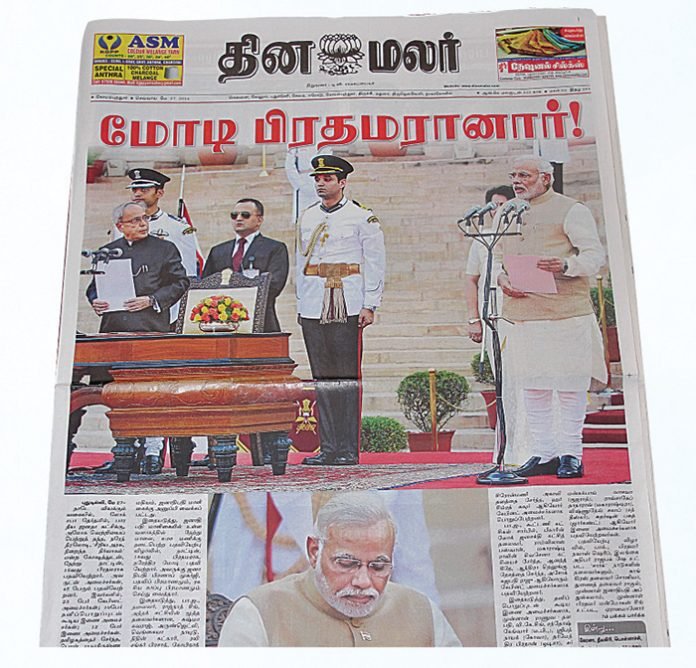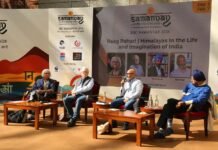The BJP led by Modi has won a landslide of Lok Sabha seats 52% although its vote percentage is about 31%, as opposed to the Congress which has received 19% of the vote and only 8% of the seats (44). To my view this means that the BJP is really the only modern political party in the country which broadly understands the current situation as far as what and how a large part of the electorate is thinking. With its constituency-wise analysis it recognizes the opportunities and spin needed to put its views across.
Modi may be able to pull off the reforms needed to bring back high levels of GDP growth. There is absolutely no shortage of ideas and experts and the new prime minister seems to have some intuitive idea about what comes first and what ideas are easiest to sell and which could bring about the biggest change in the least time.
Because of the immense discussion about his and the BJP’s anti-minority history, it doesn’t look like he will be able to act out some of the wilder fantasies of his colleagues. The institutions although they are corruptible may hold with the
support of political opposition although one can certainly not count on the Congress to fight against gradual moves that would discriminate against the poor, Muslims, Christians and other minorities.
The economic reforms while they may take time are not that difficult. The RBI governor and the previous finance minister have already had some positive effect on the direction of the economy. The balance of payments has improved, the Rupee is strengthening and the BJP has a loyal following amongst the trader and small business community which can help the government to control food prices and inflation to an extent. Modi claims that he will release overflowing grain stocks and this is sensible since the storage is of poor quality and there must be huge amounts of rotten grain at the bottom of storage silos; or no grain at all with massive fudging of the inventory.
Modi will most likely surprise us with what he will do first. However, my guess of a possible scenario is that he will probably first act on development in UP and Bihar — the two poorest states from where he has really received a mandate notwithstanding their poor and Muslim populations. Having won 71 seats from UP means that a quarter of his seats have come from a state where his chief organizer claims that a third of the population had no access to television or newspapers.
Another possibility is that Modi is likely to work with Japan first and that makes sense since as chief minister of Gujarat he has been very hospitable to Japanese companies including some related to the printing industry. The Japanese have the inside track on building the industrial corridor from Delhi to Mumbai and also on the high
speed rail project that should have started decades ago but
for the quick and lucrative deals in buying planes and building airlines. In fact Modi has been helpful to global players from many countries including Germany for heavy engineering projects.
I recently visited Shanghai Electric’s energy turbine facility which apparently already has ten on-going power projects in India. The Chinese have offered lots of capital
and so far the most friendly industrialists to them have included the Ambanis, the Adanis and Jindals who
The special Dinamalar issue printed newsprint published on 27 May 201
have used their help for power projects and also for telecommunication. The Congress apart from its lack of direction did not have the guts to really do business with the Chinese. (In any case for any Indian government, there are security and defence issues also that have to be resolved as well as long-term strategy).
Another scenario or priority for Modi may be to first neutralize or normalize Pakistan and defuse the Kashmir issue to improve security and law and order in the country. This is not a simple matter but he seems to display an appropriately engaged attitude and has the majority in Parliament to put through deals. Subsequent or parallel engagement could be with Japan and China. In any case Modi seems to be looking at Asia. Modi himself seems ahead of his followers and even his educated supporters as far as the need to appear and act humbly and justly. The question is how far he can keep his cadres and the wilder holy men in control and ignore some of the stated policies of his party.
The initial move to pull off a South Asia inaugural type of swearing-in has had a brilliant effect. He has won over many skeptics. I think there is no option but to wait and watch and to exercise democracy to the utmost to keep him on the straight and narrow. His ministers are making the right noises too — the Information and Broadcasting minister is the son of a newspaper man who speaks of total press freedom; and the human resources development minister has talked about doubling the central government’s outlay for education from 3 to 6% of GDP. Although education is largely a state subject one needs to recognize it as well as the recent events in terms of their
details and particularities and not in generalities.
















